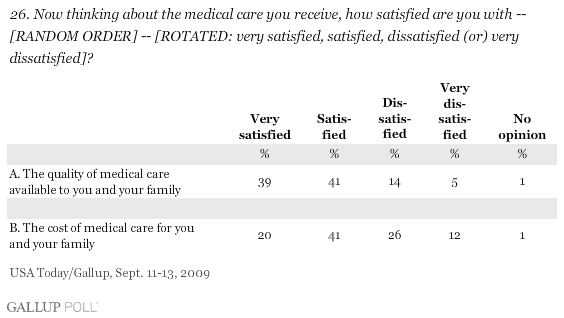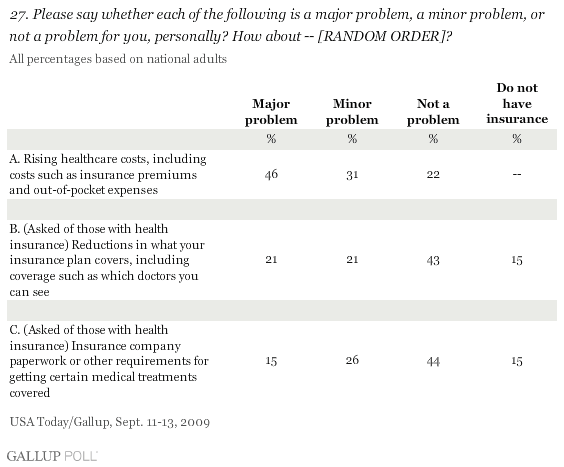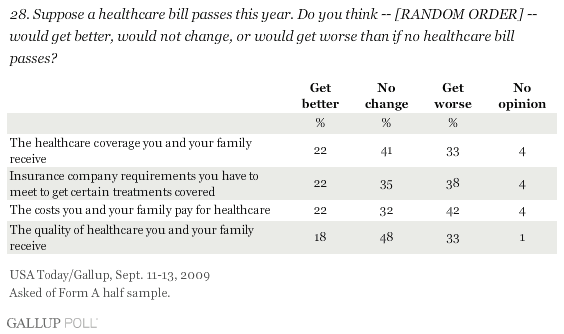PRINCETON, NJ -- Americans are broadly satisfied with the quality of their own medical care and healthcare costs, but of the two, satisfaction with costs lags. Overall, 80% are satisfied with the quality of medical care available to them, including 39% who are very satisfied. Sixty-one percent are satisfied with the cost of their medical care, including 20% who are very satisfied.
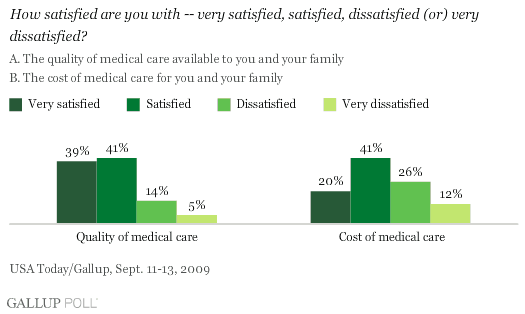
"Close to 4 in 10 Americans (38%) -- by far the largest percentage mentioned for any issue -- cite the cost or affordability of healthcare as the nation's biggest healthcare problem."
There is a clear gulf in these perceptions between the health insurance haves and have-nots. According to a Sept. 11-13 USA Today/Gallup poll, the 85% of Americans with health insurance coverage are broadly satisfied with the quality of medical care they receive and with their healthcare costs. At 79%, satisfaction with costs among Medicare/Medicaid recipients is particularly high.
The 15% who are uninsured are far less satisfied with the quality of their medical care (50% are satisfied), and only 27% are satisfied with their healthcare costs. (Sixty-nine percent are dissatisfied with their costs.)
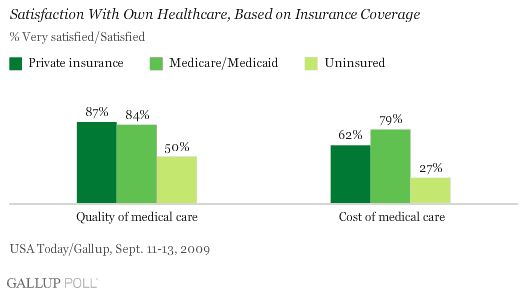
A question asking whether healthcare costs pose a major problem, a minor problem, or no problem personally for respondents provides another indication of the broad gap in concern about healthcare between the insured and the uninsured. Seventy-two percent of the uninsured say costs are a major problem. By contrast, 42% of adults with private insurance, and 40% of those with Medicare/Medicaid, say this. (National results are shown in tables at the end of this report.)
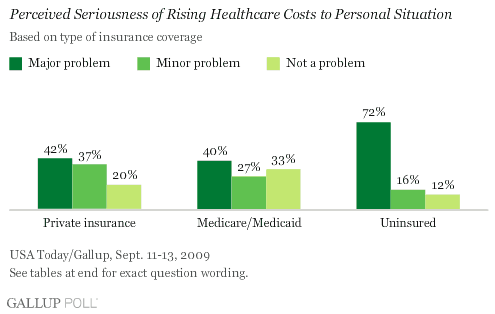
While healthcare costs do not appear to be a major impediment for the majority of insured Americans, on a relative basis, they are a much greater concern than two other leading healthcare system complaints: benefit reductions and insurance paperwork.
One in four insured Americans say reductions in what their insurance plan covers is a major problem for them; slightly fewer (18%) say insurance paperwork is a major problem. These figures compare with 42% of insured Americans who say rising healthcare costs pose a major problem.
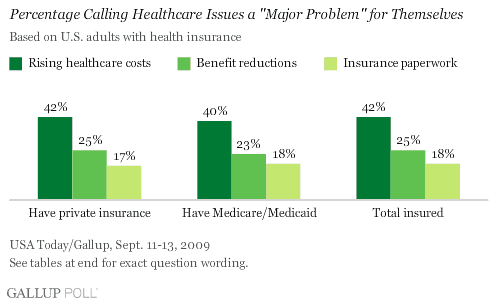
Another important indication of just how central the cost factor is to Americans' healthcare concerns comes from an open-ended measure of the major problems facing the healthcare system today. Close to 4 in 10 Americans (38%) -- by far the largest percentage for any issue -- explicitly cite the cost or affordability of healthcare as the nation's biggest healthcare problem. However, a large number of the less frequently cited issues have a cost component to them, including references to medical malpractice; overcharging; greed by insurance companies, drug companies, and hospitals; and waste and fraud.
After cost generally, the next-highest-ranked issues are the number of uninsured Americans (mentioned by 15%), followed by insurance companies and "insurance company greed" (13%).
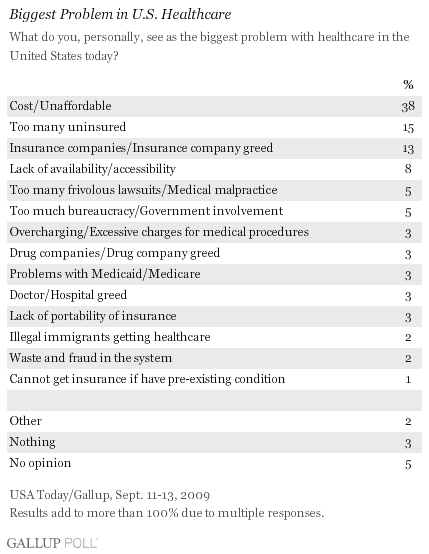
Cost is the top-ranked issue for the insured as well as the uninsured -- mentioned by 43% of those with private insurance and 39% of the uninsured, compared with 26% of Medicare and Medicaid recipients.
All of this focus on healthcare costs could translate into substantial public support for healthcare reform if Americans believed it would help to contain their own costs. But according to the new poll, Americans are much more likely to believe their own costs would get worse rather than better -- 42% vs. 22% -- if a healthcare bill passes this year.
The balance of opinion is also negative in perceptions of healthcare reform's impact on their own healthcare coverage, insurance company demands, and quality of care.
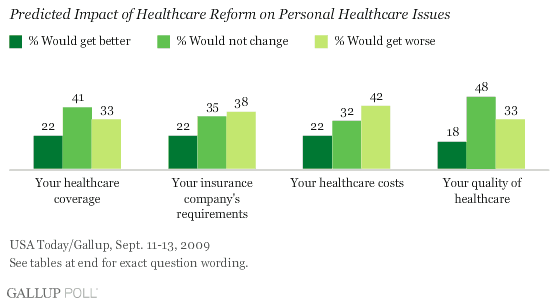
As reported last week, Gallup also finds Americans more pessimistic than optimistic about the impact of healthcare reform on the cost and quality of care in the country as a whole.
All of this could help explain why current support for passing a healthcare reform bill is at an anemic 38% -- which stretches to 50% when undecided Americans are pressed to indicate a preference.
Bottom Line
Gallup finds that the biggest healthcare concern to Americans, in terms of both the nation and their own personal lives, is cost. The cost factor is deeply troubling on a personal level to the uninsured population, but also ranks as the top concern of the insured. At the same time, Americans are much more skeptical than optimistic about the likelihood that healthcare reform will reduce their own healthcare costs.
Survey Methods
Results are based on telephone interviews with 1,030 national adults, aged 18 and older, conducted Sept. 11-13, 2009. For results based on the total sample of national adults, one can say with 95% confidence that the maximum margin of sampling error is ±4 percentage points.
Interviews are conducted with respondents on land-line telephones (for respondents with a land-line telephone) and cellular phones (for respondents who are cell-phone only).
In addition to sampling error, question wording and practical difficulties in conducting surveys can introduce error or bias into the findings of public opinion polls.
